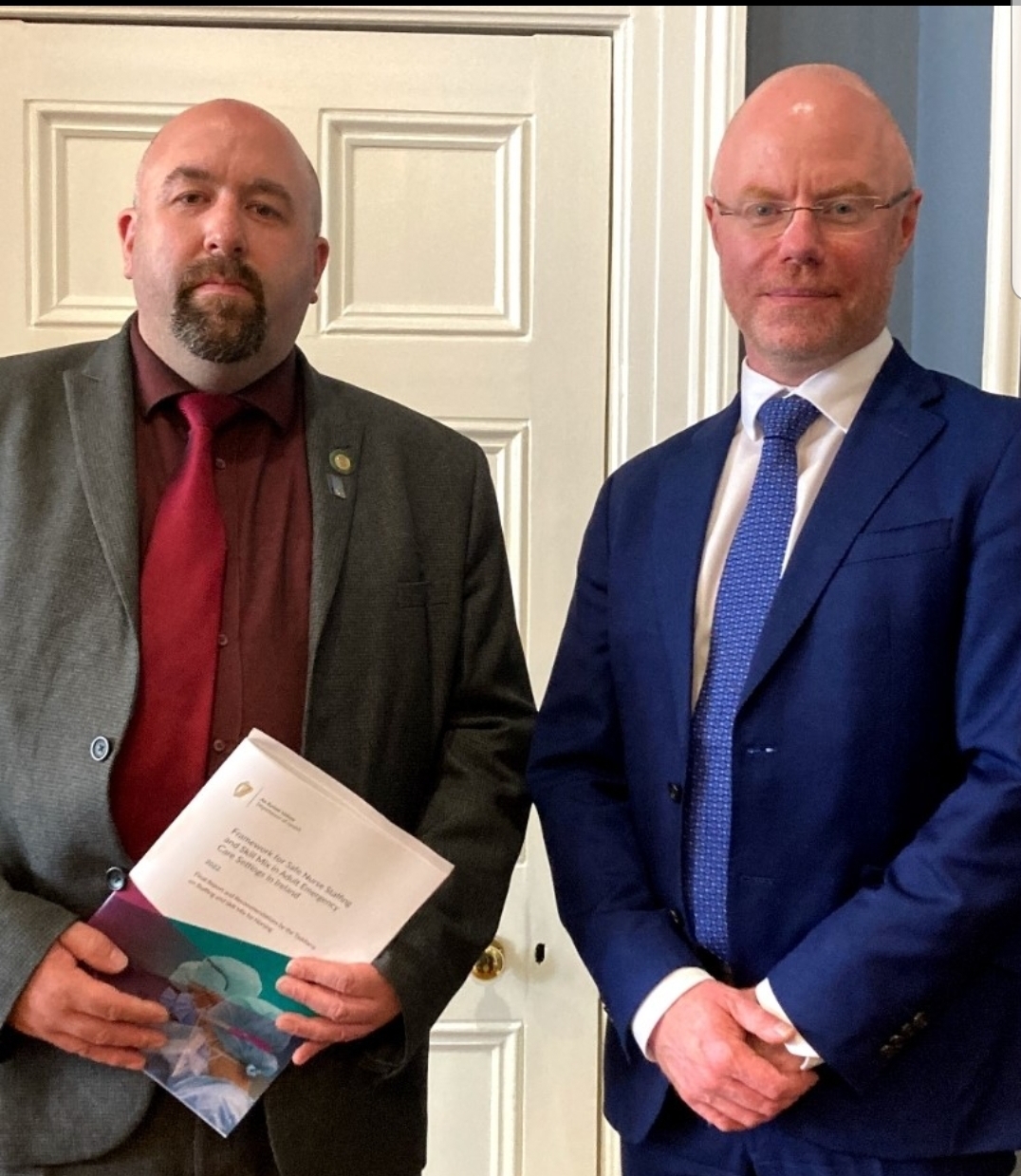Potentially life-saving initiative for members of the SIPTU Nurses & Midwives Salary Protection Scheme
SIPTU has teamed up with Cornmarket this January to tackle cancer through ‘Pink & Blue Power’, a potentially life-saving breast and prostate health programme for members of the SIPTU Nurses & Midwives Salary Protection Scheme. This salary protection scheme is open to SIPTU Nurses, Midwives, National Ambulance Service personnel and Health Care Assistants in the public service. More information is available here.
The aim of Pink & Blue Power is to increase awareness of the signs and symptoms of breast and prostate cancer, while providing members with vital education, the opportunity for a once-off clinical physical assessment with a GP and a referral for further tests if needed. Women aged 30 to 49 and men aged 40 to 65 in the Scheme will be invited to attend.
Invites will be posted in 2024 in three rollout blocks (alphabetically by first name) as follows:
Rollout 1: posted in January
Rollout 2: posting in May
Rollout 3: posting in July
Places are limited and on a first-come, first served basis so book early to avoid disappointment. The cost of participating is covered by the Scheme.
The Pink & Blue Power programme was launched in response to a high level of cancer claims, and in recognition that 1 in 9 women are diagnosed with breast cancer in their lifetime, while 1 in 7 men are diagnosed with prostate cancer. As we all know awareness and early intervention is crucial. The programme works. In a post programme survey, 92% said they know what to look for when self-checking their breasts compared to only 40% before participating.
This programme can help save lives so if you get an invite, we strongly encourage you to book.
For more, visit cornmarket.ie.
Pink & Blue Power is a benefit of the SIPTU Nurses & Midwives’ Salary Protection Scheme.
Not a member of the Scheme? Visit www.cornmarket.ie/siptu for more on benefits and how to apply.


